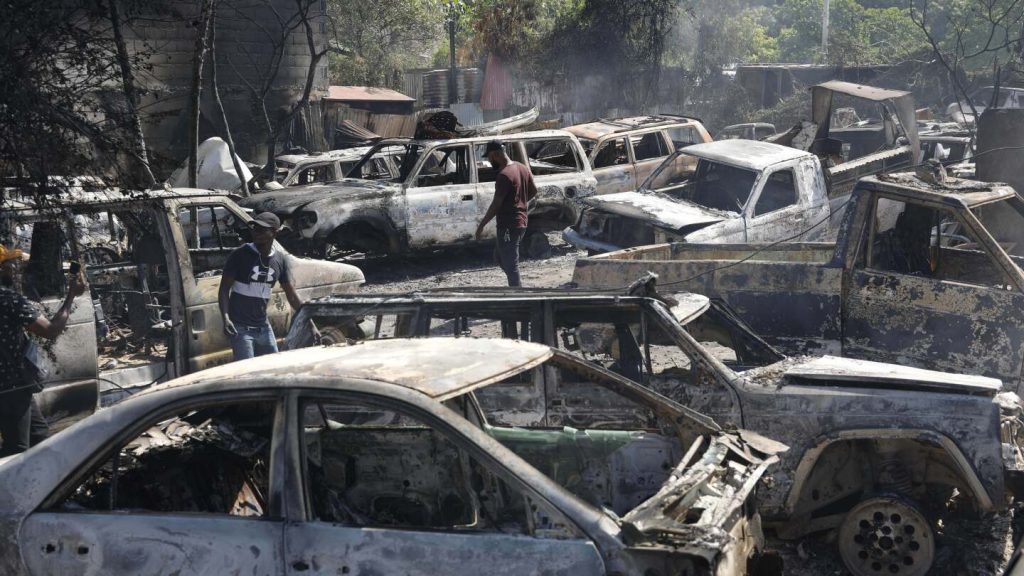Fresh turmoil involving the transitional presidential council responsible for choosing Haiti’s new leader has triggered a flurry of meetings with Caribbean leaders and officials from the U.S., Canada, and France. Concerns over the security of council members have delayed their swearing-in, with ongoing gang violence in Haiti’s capital complicating the situation. Gunmen have attacked police stations, the main airport, and prisons, leading to mass inmate releases and widespread displacement.
American officials have evacuated over 340 U.S. citizens from Haiti since mid-March, primarily from Port-au-Prince. The council, consisting of nine members from various political parties and groups, has faced setbacks with the resignation of a representative due to political attacks and death threats. The Montana Accord, a group of civil society leaders on the council, supported the resigning member and called for an end to violence in the country. Despite the replacement of the resigning member, the council has yet to be sworn in, leading to uncertainty about the timeline for formal announcements.
The council is crucial for selecting Haiti’s new leader and appointing a council of ministers, at which point Prime Minister Ariel Henry has indicated he would resign. While gang violence has slightly subsided recently, attacks like the burning of a garage in Port-au-Prince continue to disrupt the lives of residents. The strategy of gang violence seems to involve intermittent attacks to exert maximum pressure, possibly orchestrated by political leaders to achieve specific aims. Concerns about the delay in establishing new leadership in Haiti continue to grow, as the power dynamics between political and criminal entities remain volatile.
With a meeting scheduled between council members and Caricom officials, there is hope that progress will soon be made to address the ongoing crisis in Haiti. The delay in making the council operational reflects the deep-seated conflicts within Haiti’s political arena, allowing the influence of armed groups and criminal elements to persist. As the situation evolves, the urgency to establish stable leadership in Haiti becomes more apparent, with a focus on ending violence and restoring security for the country’s citizens. The involvement of regional and international partners in the process underscores the importance of addressing the root causes of instability in Haiti and charting a path towards a more secure and stable future.


